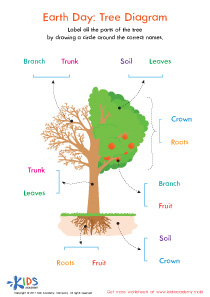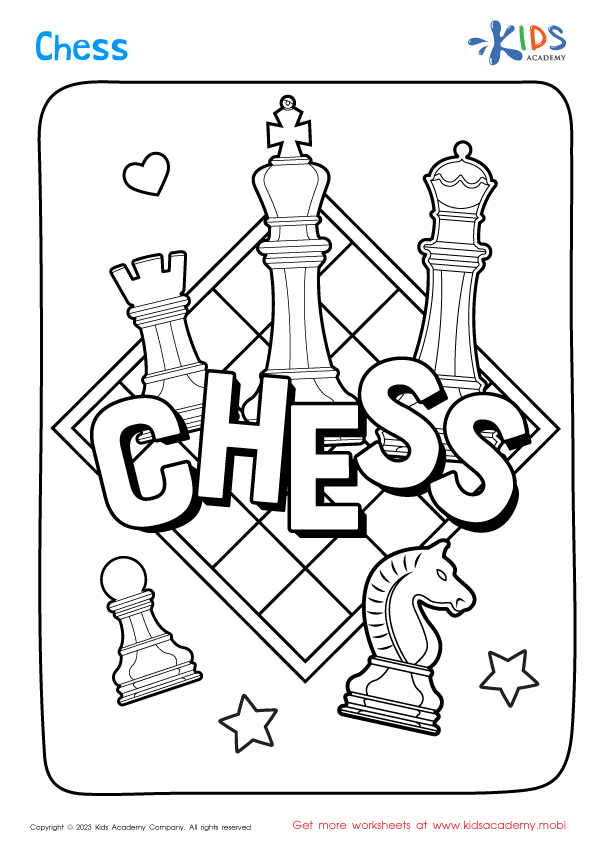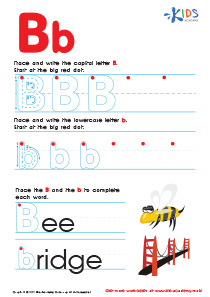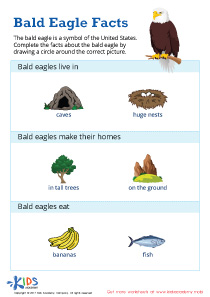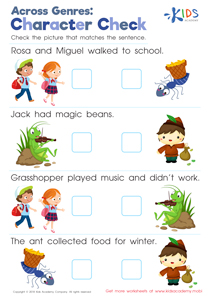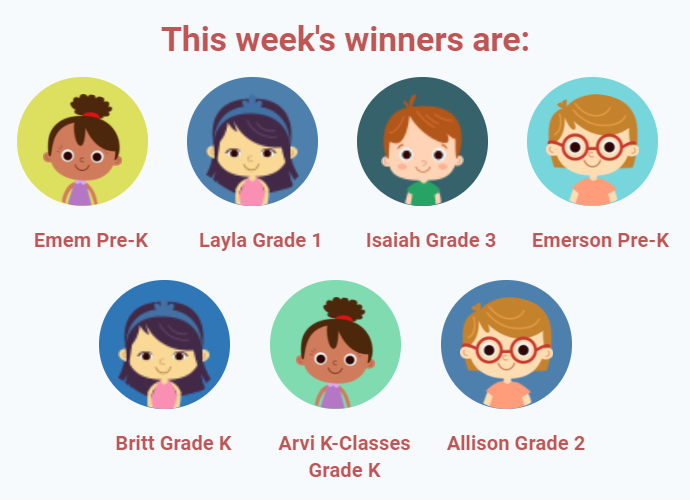Normal Letter ID Quizzes for 4-Year-Olds
3 results
3 filtered results
Clear all filters3 filtered results
-
From - To
Dive into the world of alphabets with our "Normal Letter ID for 4-Year-Olds" interactive assessment quizzes! Specifically designed for young learners, these quizzes offer a fun and engaging way to master letter identification. As your child navigates through each quiz, they will be challenged to recognize different letters, enhancing their literacy skills. Immediate feedback is provided, ensuring a supportive learning environment where your child can thrive. Perfect for 4-year-olds, our quizzes make learning feel like play. Empower your child's journey to literacy today with our "Normal Letter ID for 4-Year-Olds" quizzes!
In today's fast-paced educational environment, parents and educators constantly seek effective and engaging methods to introduce fundamental concepts to young learners. One particular area of focus is literacy, where the foundation is built through the recognition and understanding of letters. This is where our Normal Letter ID for 4-Year-Olds comes into play, offering an interactive and enjoyable approach to learning that is specifically tailored for young minds.
The Normal Letter ID for 4-Year-Olds is a meticulously designed program that acknowledges the unique learning capabilities and needs of preschool-aged children. At the age of 4, children are at a crucial stage of development, where they are not only capable of recognizing shapes and symbols but are also eager to learn and absorb new information. This program leverages this natural curiosity and desire for learning by presenting letter identification in a format that is both accessible and captivating to them.
Our interactive quizzes are a standout feature of the Normal Letter ID for 4-Year-Olds program. These quizzes are more than just assessments; they are a dynamic learning tool that promotes active engagement. Each quiz is crafted to reinforce the letters that have been introduced, using a variety of colorful visuals, sounds, and interactive elements that are sure to capture the attention of 4-year-olds. This multisensory approach not only aids in retaining the information but also makes the learning experience enjoyable.
Moreover, the quizzes are designed with adaptability in mind, accommodating children at different stages of letter recognition. Whether a child is just starting to learn the alphabet or is already on the path to mastering it, the quizzes adjust to their level of understanding, ensuring a challenging yet achievable learning experience. This personalization aspect is crucial in fostering a sense of achievement and motivation among young learners.
The benefits of the Normal Letter ID for 4-Year-Olds extend beyond simple letter recognition. Engaging with the quizzes helps children develop other essential skills, such as cognitive abilities, attention to detail, and fine motor skills. As they interact with the quizzes, they learn to listen, follow instructions, and make selections, all of which are critical skills for early childhood development.
Furthermore, the program encourages a positive relationship with learning from an early age. By incorporating elements of play into education, children learn that acquiring new knowledge can be fun and rewarding. This positive association with learning is something that they can carry with them as they advance through their educational journey.
In conclusion, the Normal Letter ID for 4-Year-Olds, with its interactive quizzes, stands out as an invaluable resource for young learners. It offers a comprehensive and engaging approach to learning that is specifically designed to meet the developmental needs of 4-year-olds. Through this program, children not only learn to identify letters but also develop a range of skills and a positive attitude towards learning. For parents and educators, it provides a trusted and effective tool for introducing the fundamentals of literacy, setting the stage for future academic success.
